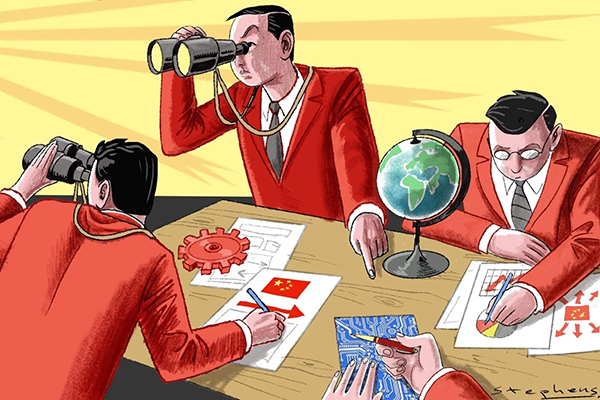Mabel Lu MIAO: Three Scenarios for Future US-China Relations: View from Beijing
November 13 , 2020
Experts tell forum infrastructure and cooperation key to sustaining trend
More investment in public infrastructure, better coordination of multilateral cooperation and stronger respect and support for international organizations are crucial for sustaining the trend of globalization during and after the COVID-19 pandemic, experts said on Thursday.
Zhu Guangyao, former vice-minister of finance, said at the Sixth China and Globalization Forum in Beijing that the pandemic is creating a series of systemic global crises the likes of which have not been seen since World War II.
“Not only is it a global public health emergency, but it is also causing global economic recession and posing a serious threat to international governance,” he said, adding that the international community has not launched an organized response to the disease.
Zhu said countries should come together under existing international frameworks, such as the G20 Leaders’ Summit later this month, to build a consensus and form coordinated policies to mitigate the economic damage caused by the pandemic.
Li Xikui, vice-president of the Chinese People’s Association for Friendship with Foreign Countries, said that since the pandemic began, over 80 countries have lent a helping hand to China by donating goods and money.
In return, the association has donated personal protection equipment, diagnostic kits and face masks to 60 foreign organizations in 26 countries, he said.
“Civil diplomacy is facing challenges during the pandemic, but there are also new opportunities as the Chinese government is aiming to be more open on more levels,” he said, adding his organization will continue to promote civil diplomacy and globalization to eliminate cultural barriers and let the world know more about China and vice versa.
Du Zhanyuan, director of the China Foreign Languages Publishing Administration, said that while some countries have implemented policies that go against globalization during the pandemic, it will not affect the overall trend of increasing interconnectivity among nations.
“China has been a staunch supporter and defender of globalization,” he said. But globalization in the post-COVID-19 era may require changes to address inequality, environmental degradation and social issues, he added.
Danny Alexander, vice-president and corporate secretary of the Asian Infrastructure Investment Bank, said successful globalization needs strong international organizations so that countries can be organized to jointly tackle global challenges such as climate change and pandemics.
“We hope to facilitate and encourage cross-border cooperation in some areas,” he said.
Jonathan Woetzel, director of the McKinsey Global Institute, a private think tank, said basic infrastructure, especially that supporting the digital and information economy, has played a key role in addressing global challenges, but there was still a huge shortage of investment in that sector.
“China will play a very important role in filling that shortage,” he said, adding that connecting financial sectors and improving global commerce “will depend on China’s participation in the global economy”.
Marcos Troyjo, president of the New Development Bank, said infrastructure, development policies and international cooperation are areas where countries should invest more to sustain the trend of globalization.
“We should have frameworks that allow everyone to jointly pursue common goals and contribute to global prosperity,” he said.
Topical News See more






